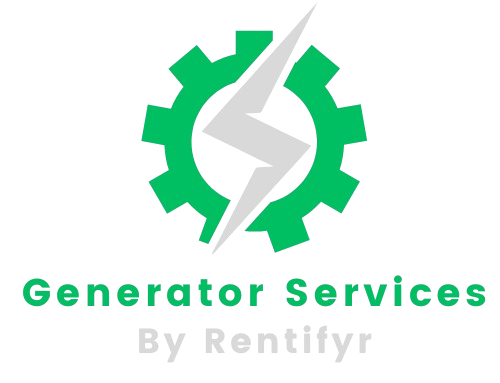When renting a generator, fuel type is a key decision. Your choice affects how well the generator runs, how easy it is to refuel, and its impact on the environment. This guide will help you pick the best fuel for your needs.
Types of Generator Fuels
1. Diesel
Diesel is a common choice for larger generators. Here’s why:
- Efficiency: Diesel engines use less fuel per kilowatt-hour.
- Durability: Diesel generators often last longer.
- Power: Great for heavy-duty, long-running jobs.
But keep in mind:
- Noise: Diesel generators can be louder.
- Cost: Diesel fuel might cost more upfront.
- Cold starts: They can be harder to start in cold weather.
[Learn more about matching generator size to your power needs.](link to Article 2)
2. Petrol (Gasoline)
Petrol is often used in smaller, portable generators. Here’s what to know:
- Availability: Easy to find at any gas station.
- Cost: Generally cheaper than diesel.
- Portability: Petrol generators are usually lighter.
Drawbacks include:
- Efficiency: Less efficient than diesel for long runs.
- Storage: Petrol doesn’t store well for long periods.
- Environmental impact: Higher emissions than some other fuels.
3. Propane
Propane is growing in popularity for generator fuel. Here’s why:
- Clean burning: Lower emissions than petrol or diesel.
- Storage: Propane stores well for long periods.
- Availability: Often available during power outages.
Consider these points:
- Efficiency: Slightly less efficient than diesel or petrol.
- Power output: May have lower power output compared to diesel.
- Refueling: Requires special propane tanks.
4. Natural Gas
For some standby generators, natural gas is an option. Benefits include:
- Convenience: Connects directly to existing gas lines.
- Clean burning: Lower emissions than liquid fuels.
- No storage needed: Continuous supply from gas lines.
Keep in mind:
- Availability: Requires existing natural gas infrastructure.
- Power output: Generally lower than diesel or petrol.
- Installation: May need professional setup.
How Fuel Type Affects Your Rental Decision
Efficiency Considerations
- For short-term use, petrol’s lower upfront cost might be best.
- For longer jobs, diesel’s efficiency could save money over time.
- Consider how much power you need and for how long.
[Check your rental agreement for fuel efficiency details.](link to Article 3)
Availability and Convenience
- Think about where you’ll use the generator.
- Is fuel easily available in that area?
- How often will you need to refuel?
Environmental Impact
- If eco-friendliness is a priority, consider propane or natural gas.
- Some areas have regulations on emissions. Check local rules.
Site Conditions
- Space for fuel storage
- Ventilation needs
- Noise restrictions
[Learn more about how site conditions affect generator choice.](link to Article 1)
Making Your Decision
- Assess your power needs first.
- Consider how long you’ll need the generator.
- Think about fuel availability at your site.
- Factor in environmental concerns.
- Check local regulations on fuel use and storage.
Conclusion
Choosing the right fuel type is crucial for a successful generator rental. It affects cost, efficiency, and environmental impact. By understanding these factors, you can make an informed decision that best fits your needs.
Remember, proper maintenance is key regardless of fuel type. Regular check-ups keep your generator running smoothly and safely.
